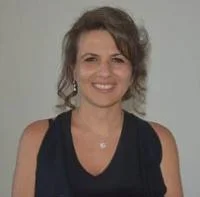The Epstein Lecture Series
Established in 2008 in memory of Professor Stephan Epstein to showcase the work of up-and-coming academics in the field of economic history.

The Epstein Lecture 2025
Michela Giorcelli (UCLA)
The diffusion of soft technologies during and after World War II
Thursday 20 March, 6.30pm, Auditorium, CBG
Michela Giorcelli will deliver the 2025 Epstein Lecture. Her topic is how the large-scale diffusion of innovative management practices to US firms involved in war production acted as a technology that put them on a higher growth path for decades, and helped create the ‘American Way’ of business.
Michela Giorcelli is Associate Professor in the Department of Economics, University of California - Los Angeles.
More information, including how to attend, can be found here.

The Epstein Lecture 2024
James Feigenbaum, Boston University
Thursday 7 March, 6.30-8pm, Auditorium, Centre Building, and online
217 million census records: evidence from linked census data
More information can be found here: 217 million census records: evidence from linked census data
James Feigenbaum(@jamesfeigenbaum) is Assistant Professor in the Boston University Department of Economics. He is also a Faculty Research Fellow at the NBER in the Development of the American Economy program and a Junior Faculty Fellow at BU’s Hariri Institute for Computing.

The Epstein Lecture 2023
Dr Mara P. Squicciarini
Thursday 30 March 2023, 6.30pm
A Complex Relationship: religiosity and science in a historical perspective
More information, including a link to the podcast of this event, can be found here.
Mara Squicciariniis an associate professor at Bocconi University, Department of Economics, currently visiting Harvard University.
Her research interests in the field of economic history include economic growth and development, and applied microeconomics. Read more about Dr Squicciarini here: Mara P. Squicciarini

The Epstein Lecture 2022
The Effects of Immigration Restrictions on the Economy
Professor Philipp Ager
Thursday 10 March 2022, 6:00pm to 7:30pm
Online Public Event
In the early 20th century, with few restrictions on entry for Europeans, close to one million immigrants arrived on the nation's shores each year. This ended in the 1920s with a series of increasingly restrictive immigration quotas, eventually limiting entry from affected countries to 150,000 a year. Professor Philipp Ager will discuss the socio-economic consequences this policy had for the US population at that time, and what lessons can be learned from it.
Philipp Ageris an economic historian and applied microeconomist, who focuses on the historical development of Europe and the United States, in particular the development of the American economy in the late 19th and early 20th centuries
The event will be chaired by Patrick Wallis, Professor of Economic History at LSE.
You can find more information about this event, including a link to the podcast, here: The Effects of Immigration Restrictions on the Economy
Pre-registration is required for this event. Registration for this opens at 10am, Thursday 17 February.

The 2021 Epstein Lecture
150 Years of Racial Inequality in the US: From Emancipation Through Today
Lecturer: Dr Marianne Wanamaker (University of Tennessee)
Chair: Professor Joan Roses
Date and time: 25 March, 5.30-7.30pmThe post-Civil War South was replete with limits on black economic mobility, and understanding our current inequality struggles requires understanding the origin of these differences in the Reconstruction South. Dr. Wanamaker’s presentation will document the patterns of racial inequality from 1865 through today.
Marianne Wanamaker is an associate professor of economics at the University of Tennessee and the former chief domestic economist and senior labor economist at the White House Council of Economic Advisors. She serves as co-editor in chief at Explorations in Economic History and is a research associate at the National Bureau of Economic Research in Cambridge, MA, at IZA, and at Stellenbosch University. Her research centers on the economic history of minority groups in the U.S. labor market, especially the experience of Black men.
You can find more information, including a link to the podcast, here.

The 2020 Epstein Lecture
Export Booms and Labour Coercion: Evidence from the Lancashire Cotton Famine
Lecturer: Professor Mohamed Saleh (Toulouse School of Economics)
Chair: Professor Joan Roses
Date and time: 5 March, 6-7.30pm
Venue: PAN G.01 (Pankhurst Tower)
The lecture will be followed by a drinks receptionAbout Professor Saleh
Mohamed Saleh is a Professor of Economics at the Toulouse School of Economics and a member of the Institute for Advanced Study in Toulouse. His research interests are in Economic History, Political Economy, and Development Economics. In particular, he has been interested in the economic history of the Middle East and North Africa, where he employs novel datasets constructed from both primary (archival) and secondary data sources, such as historical population censuses and papyrological tax records. Some of the topics he examined include the socioeconomic differences across religious groups in the Middle East and North Africa, how they were generated by taxation in the medieval period, and how they were influenced by state industrialization and public mass education during the last two centuries. In addition to various questions related to this topic, his current research agenda also focuses on labour coercion and land inequality in the region and the historical shift toward wage labour.
You can find more information, including a link to a recording of this event .
Read more about Professor Saleh on his webpage: Mohamed Saleh webpage